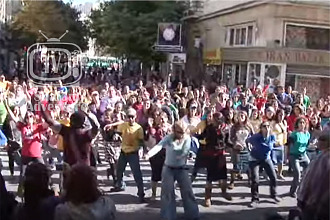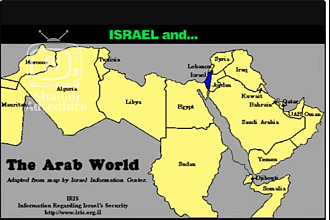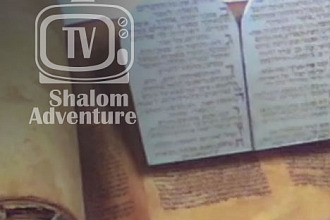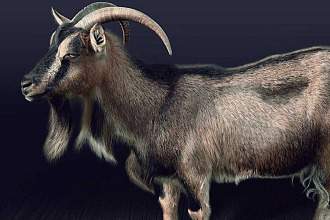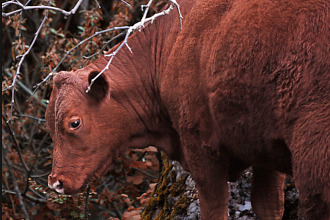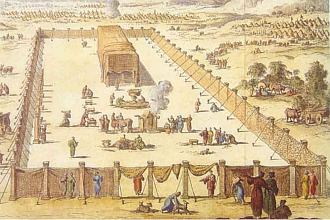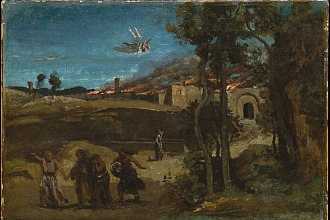Parasha for the Week: Shemot: Exodus 1:1 – 50:26
Haftarah for the Week: Isaiah 27:6 – 29:23 (Ashkenazim
Haftarah for the Week: Jeremiah 1:1 – 2:3 – (Sephardim)
Besorat Yeshua: Matthew 8:10
Overview:
The Book of Shemot (Exodus) chronicles the creation of the nation of Israel from the descendants of Yaakov.
At the beginning of this week’s Parasha, Pharaoh, fearing the population explosion of Israel, enslaves them. However, when their birthrate increases, he orders Israel’s midwives to kill all newborn males.
Yocheved gives birth to Moshe and hides him in the reeds by the Nile.
Pharaoh’s daughter finds and adopts him, although she knows he is probably a Hebrew. Miriam, Moshe’s sister, offers to find a nursemaid for Moshe and arranges for his mother Yocheved to fulfill that role.
Years later, Moshe witnesses an Egyptian beating a Hebrew and Moshe kills the Egyptian.Realizing his life is in danger, Moshe flees to Midian where he rescues Tzipporah, whose father Yitro (Reuel) approves their subsequent marriage.
On Chorev (Mt. Sinai) Moshe witnesses the burning bush where G-d commands him to lead the People of Israel from Egypt to Eretz Yisrael, the land promised to their ancestors.
Moshe protests that the People of Israel will doubt his being G-d’s agent, so G-d enables Moshe to perform three miraculous transformations to validate himself in the people’s eyes: transforming his staff into a snake, his healthy hand into a leprous one, and water into blood.
When Moshe declares that he is not a good public speaker G-d tells him that his brother Aharon will be his spokesman.
Aharon greets Moshe on his return to Egypt and they petition Pharaoh to release Israel.
Pharaoh responds with even harsher decrees, declaring that Israel must produce the same quota of bricks as before but without being given supplies.
The people become dispirited, but G-d assures Moshe that He will force Pharaoh to let the Israel leave.
"Moses Was Saved"
When Moshe was born, his mother, Yocheved, hid him for three months from the Egyptians, who decreed that every male child be drowned in the Nile River. After three months, when she could no longer hide her son, Yocheved placed him in a basket and set it along the banks of the Nile River.
Afraid of Pharaoh’s decree, she hid Moshe for three months. After three months she had to find a way to save him. The Torah tells us that she placed the child in a basket and put it by the river. Moshe’ sister, Miriam, stood from afar to see what would happen to her little brother.
Pharaoh’s daughter, Bitya, came to bathe in the river and saw the basket. Although the basket was far from her, she asked one of her servant to get the basket to see what was inside. When she opened the basket she found a baby crying. She said, “It must be from the Hebrew babies.” (Ex 2:6.) Pharaoh’s daughter called the baby, Moshe (“to pull out”), for “from the water I have pulled him out.”
Now Bitya needed someone to nurse the baby. The Torah relates how Miriam approached her and offered to find a nursing mother. When Bitya agreed, Miriam brought Moshe’s mother, Yocheved, to nurse her own baby. Thus, Moshe was reunited with his mother during the feeding period.
"Understanding First, Or Doing First"
Are we prepared to recognize the savior of Israel when he appears At first, the people of Israel did not recognize Moses. Could it be the case when the Messiah comes?
We are told in this parasha how Moses was miraculously saved from the crocodiles of the Nile by the daughter of the Pharaoh and raised in the royal court. He sympathizes with the brutalized Hebrew slaves, defends them, and is forced to flee from Egypt.
We hear nothing regarding Moses for the next forty years until he reemerges as a shepherd in Midian, married to the daughter of Yitro. Where did his holiness and greatness stem from, how was it developed, who were his mentors and what were his experiences over those long decades of separation from his people? The Torah gives us no clue or answer to these questions. It was the case of Yeshua, we know what happened at his birth, we know the circumstances of his Bar Mitsva, but we know nothing about the next eighteen years. Since his birth was very special we are sure that his holiness came from G-d who was with him from the first to the last day of his human life. His mentors were first his father and his mother, and he even learned from the Rabbis of his synagogue in Nazareth; However we know that Nazareth was not a good city from where good things or good people come from. We remember the sentence pronounced by Nathanael “Nazareth! Can anything good come from there?” (John 1:46). It effectively points out that greatness oftentimes comes from unexpected sources and from people and leaders who operate outside of the usual establishment circles.
All of life is a mystery and certainly the Israel story remains in its base an inexplicable one. This therefore sets the stage for everything else that will now follow in the Torah. It is why the people of Israel, when accepting the Torah pledged to G-d that “we will do and then perhaps try to understand,” if we wish to understand first we will never come to do. The Divine hand guides us but it is never subject to our rational thoughts and explanations.
"Horeb the Mountain of G-d"
The Torah affirms “Now Moses was tending the flock of Jethro his father-in-law, the priest of Midian, and he led the flock to the far side of the desert and came to Horeb, the mountain of G-d.” (Ex 3:1). Horeb is already called the mountain of G-d; for when this verse was written by Moses, the Torah had already been given at Sinai. It is very significant that the process of redemption started here at Horeb, the place were the Torah was destined to be given. From the very beginning of G-d’s people it was the purpose of G-d to give to His people His Torah, His ethics and His values.
In this text it is made clear that the purpose of the redemption from Egypt was the revelation of the Torah to the people of Israel. The ultimate goal of Israel was to be a people of priests (Exodus 19:6) and the Torah and His people have to be a light to the nations as well (Isaiah 54:1). Israel would not be able to reveal G-d’s will and His light without the Torah, His law, and moral prescriptions. Thus G-d wanted to lead His people to the place where they were to be constituted as the people of the Torah.
HAFTARAH: Isaiah 27:6 – 29:23 – Ashkenzim
HAFTARAH: Jeremiah 1:1 – 2:3 – Sephardim
Two texts are given to us this week, one is read by the Ashkenazim (Central European Jews) the second one by the Sephardim (Mediteranean Jews).
In the parasha, Yaakov (Israel) is oppressed by a foreign power even though Israel has been a blessing for that nation. “And he blessed Joseph and said, ‘The G-d before whom my fathers Abraham and Isaac walked, the G-d who has been my shepherd all my life long to this day, the angel who has redeemed me from all evil, bless the boys; and in them let my name be carried on, and the name of my fathers Abraham and Isaac; and let them grow into a multitude in the midst of the earth.’” (Genesis 48:15–16). This experience will be repeated several times during the history of the people of Israel. After being a blessing for their hosts, these nations persecuted Israel.
In the haftarah read this week by Ashkenazim people the accent is put on the blessings upon Yaakov (Israel, His Vineyard) who is removed from Egypt and will be fully blessed by the L-rd: “In days to come Jacob shall take root, Israel shall blossom and put forth shoots, and fill the whole world with fruit.” (Isaiah 27:6) “Therefore thus says the L-rd, who redeemed Abraham, concerning the house of Jacob: No longer shall Jacob be ashamed, no longer shall his face grow pale. For when he sees his children, the work of my hands, in his midst, they will sanctify my name; they will sanctify the Holy One of Jacob, and will stand in awe of the G-d of Israel.” (Isaiah 29:23)
Moshe was called by G-d in the parasha, to be his prophet, but at the first time he refused: But Moses said to the L-rd, “O my L-rd, I have never been eloquent… (Exodus 4:10)
The Sephardic people read the Haftarah in Jeremiah, where Jeremiah was called by G-d and as Moshe tried to refuse: Now the word of the L-rd came to me saying, “Before I formed you in the womb I knew you, and before you were born I consecrated you; I appointed you a prophet to the nations.” Then I said, “Ah, L-rd G-d! Truly I do not know how to speak, for I am only a boy.” (Jeremiah 1:4-6).
APOSTOLIC WRITINGS: MATTHEW 8:4
With the text of the parasha we start the story of Moses, his birth, his youth, his adulthood and his first experience as shepherd and only then, when he was about eighty-years-old, G-d called him to be the savior of Israel. Moses became the greatest leader of Israel, his name appears more than 800 times in the Bible, the only one who was more popular in the Bible was King David (960 times). Moses is also very important in the Brith-Hachadasha or Apostolic Writings. The name of Moses is quoted 84 times, more than any other character of the Tanakh. The only one quoted more than Moses in the Brith Hachadasha is Yeshua (1225 times). We understand this, because the whole Brith-Hachadasha is about Yeshua. Yeshua is the ultimate savior of Israel, the Messiah, that is why his name appears so many times in the Apostolic Writings, but Yeshua, as a Jew, recognizes that Moses and the Patriarchs (Abraham, Itzchak and Yaacov) are the founders of G-d’s people. They were instruments of G-d in fulfilling His purpose, but Moses has a special place in the plan of G-d. That is why Yeshua referred to Moses so many times.
The verse chosen for this portion of the Apostolic Writings is a quotation of Moses by Yeshua. “Then Yeshua said to him, ‘See that you don’t tell anyone. But go, show yourself to the priest and offer the gift Moses commanded, as a testimony to them’.” (Matthew 8:4). In this verse, we read all the respect Yeshua had about Moses. Moses had given many laws, religious laws, ceremonials laws, sanitary laws, social laws. Yeshua had just healed a man with leprosy, this illness was considered at that time as a contagious illness, only the priests were able to recognize the symptoms of this illness, and to declare anyone as “non-contagious.” That is why according to the Torah when someone was healed from leprosy, he had to present himself to the Cohanim and the Cohanim would declare him still leprous, or healed.
Yeshua was full of respect for Moses and his Torah, that is why he said to the leprous that he has to show himself to the Cohanim. It is the opposite of what most of the people think about Yeshua, he did not come to change the law of Moses, that is why he also said: “Do not think that I have come to abolish the Law or the Prophets; I have not come to abolish them but to fulfill them.” (Matthew 5:17). Yeshua, the Messiah of Israel, was faithful to the laws of Moses. Yeshua was completely Jew among the Jews, some very recent studies about the behavior and the teaching of Yeshua demonstrate that Yeshua was very close to the Pharisees, if not a Pharisee himself. He was immersed in the Mikveh of the Jordan River as any other Pharisee, for whom the ritual of purification was very important. He acted vis-à-vis the Torah and its specifications exactly like other Pharisees. We know that the Pharisees were helping the Jewish people to follow the Torah and not to break the 613 laws contained in the Torah. That is why, they put some fences around the commandments of God in order to avoid breaking them. If the commandment says: “You shall not boil a young goat in its mother’s milk.” (Exodus 23:19), the religious leaders of Israel, thought that if a man has only one or two goats, it is ok, he knows which goat has breast fed the young goat, but if a farmer has one thousand goats, or cows, it will be impossible for him to know which goat has breast fed the young goat, then, they have added a fence around the commandment saying, “Never cook any meat with any product from milk” in this way they are safe, the commandment is not transgressed. Yeshua used to interpret the law in the same way. here is an example of interpreting the law in a pharisaic way: Yeshua has quoted one of the ten commandments “You have heard that it was said, ‘You shall not commit adultery’.” (Matthew 5:27), this is the 7th commandment, it is clear and very well understood, this commandment means, don’t sleep, and don’t have an affair with a woman who is not your wife, this woman could be single, or the wife of someone else. However, Yeshua, using the same method of the Pharisees has added a fence around this commandment: “But I say to you that everyone who looks at a woman with lustful intent has already committed adultery with her in his heart.” (Matthew 5:28), we can look at the whole Hebrew Bible we will never find such a commandment: “everyone who looks at a woman with lustful intent has already committed adultery with her in his heart” that is a very new order which comes from Yeshua. It is a fence around the 7th commandment, because before committing adultery a man or a woman has to look at the other person with “lustful intent” and only after allowing to himself/herself such a feeling, he/she will be in danger to break the 7th commandment.
The conclusion here is to accept that Yeshua was a real Jew, living in his time, among the Jews and behaving as a Jews. It is only when we will help the Jewish people to reclaim Yeshua as a Jew, they will accept to consider him as a prophet, and even more as the Messiah of Israel.


